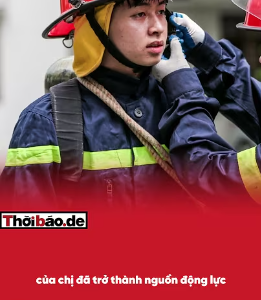
Up to now, primary and secondary schools in Vietnam still maintain the „small plan“ movement, requiring students to bring beer cans, soft drinks, plastic items, waste paper, etc. to contribute to the school. This has caused trouble for the students‘ parents.
According to observers, this is essentially an increase in revenue for the school, instead of forcing parents to pay funds – something that has been proposed by the majority of parents to be abolished.
Dan Viet newspaper on February 23 reported „Hanoi parents are frustrated and have to beg/buy beer and soft drink cans for their children to hand in at school.“ The news said that right after their children returned to school after the 2024 Lunar New Year holiday, many parents received notices that they had to contribute beer and soft drink cans for the school to raise funds.
The school’s request just mentioned has caused many parents to scramble, search around the house, post online asking for beer and soft drink cans, and even have to go to junk shops to buy them so their children can take them to the school to so-called “small plans.”
On social networks, there are many opinions saying „Please let teachers and students focus on teaching and learning, let parents focus on making money“ or „Please abandon unnecessary ‘initiatives’ like this.“
In addition, there are many dissatisfied opinions saying, „Students go to school, why do they often have to contribute a lot of scraps such as cans, waste paper, waste plastic, etc.?“
VnExpress in the article „Small plans, big troubles“ described a rather „horrifying“ image of the educational environment, on the day of student scrap collection:
“A large school yard is literally used as a scrap yard. Each group of parents brought stacks of scrap paper, bags of cardboard, beer cans… to give to their children to meet the target.
Each class appoints a teacher to receive and weigh paper, count cans, count water bottles and record in a statistics book. Looking at what’s going on, the whole school yard looks like a giant trash warehouse.“
Through research, the reporter of Thoibao.de learned that this is a long-lasting program launched by schools, called „small plan movement.“ This movement has become a mandatory emulation criterion for teachers. Therefore, whether thưy like it or not, teachers have to try to do it, even though everyone finds it extremely annoying.
It is known that the „small planning movement“ was born in 1958, 66 years ago, organized by the Ho Chi Minh Young Pioneers, with the purpose of obtaining funds to build the Pioneer Plastics Factory in Hai Phong.
But, since then, the Ministry of Education has still abused, maintained and developed this movement, claiming that it is educational for young children. However, this is not consistent with the development of the times.
A student parent from Hai Phong, requesting anonymity for security reasons, told Thoibao.de:
“Why doesn’t the school simplify things, instead of creating such big inconveniences for both parents and teachers? The ultimate goal of schools is to increase income, so just encourage children to collect old newspapers and books in their homes, ask their parents to sell them, and then pay the money to the school?
At the same time, this parent also made a suggestion, that is, schools need to publicly and transparently disclose revenue sources, as well as expenses, for parents to know. This is also necessary in educating students about transparency.
Education experts and public opinion see that educating a sense of thrift, love of labor, and responsibility to the community, through which educating students to contribute to participating in social activities, is necessity.
However, instead of the „small plan“ movement, collecting used scrap is a form that is too old, too troublesome for parents and students, and also creates bad public opinion for the educational sector. The education sector should look for more suitable, more diverse, and more attractive forms for students.
Don’t forget, during his lifetime, President Ho Chi Minh’s views on children were simply:
„Children like young leaf on branches
Knowing how to eat, sleep, and study is good enough.“/.
Tra My – Thoibao.de


























